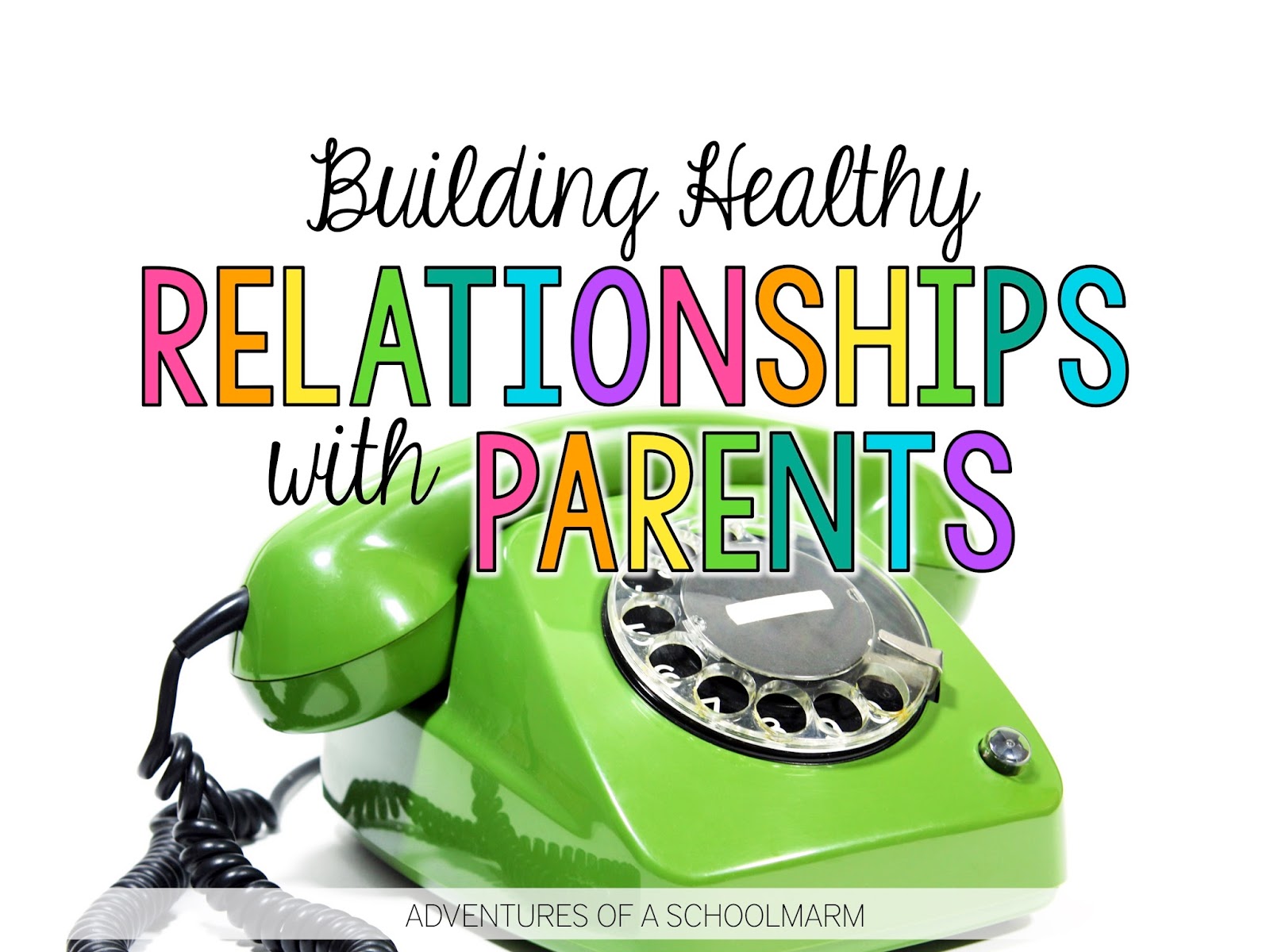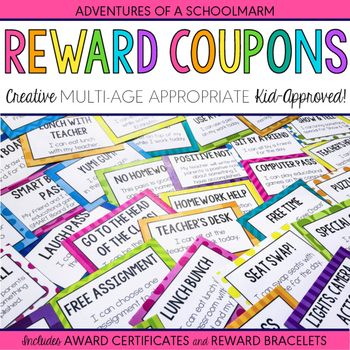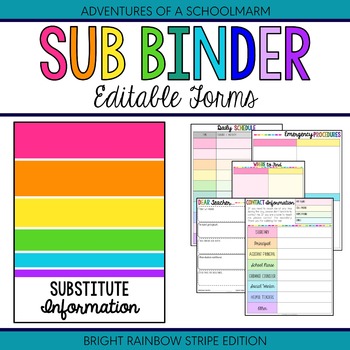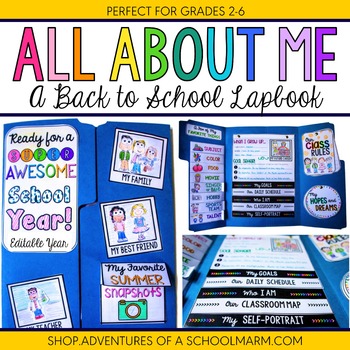Do you need help building relationships with difficult parents?
The truth is, building quality relationships with parents can be HARD. Pinterest is ready to come to the rescue, but communicating with parents doesn't always come easy. Sometimes it is a laborious and time-consuming process that leaves teachers feeling powerless, defeated, and overwhelmed. We can have great relationships with 99% of our students' families, but it just takes one difficult parent to leave us feeling like failures. So what can we do when we are having a hard time building positive relationships with parents?
The point of this post is not to stereotype or blame parents, but rather, to provide real, actionable strategies that will help teachers when they are facing the challenges that come with parent communication.
It is important to know that any level of teacher can experience a difficult parent. New teachers, veteran teachers, master teachers - no one is immune. If you are a new teacher looking for ways to start off on the right track with parent communication, you are in the right place! It may be hard to imagine now, but there will come a day when a parent leaves you feeling frustrated or defeated. These strategies are perfect for establishing healthy relationships from the beginning and maintaining them throughout the year. Or perhaps you are a veteran teacher that has many years of positive relationships, only to find yourself having a difficult time this year. Don't be alarmed - these strategies are designed to help you repair any relationships that have been a challenge, no matter what the cause. One thing is certain, you are taking proactive steps in the right direction just by reading this post. Seeking out strategies to improve our practice is the sign of a true professional.
There are many reasons why we (teachers and administrators) may classify a parent as being challenging. Perhaps we have heard from previous teachers that they have a history of being unreliable, negligent, or even aggressive. We may be unable to reach parents by phone because they do not have access to a consistent telephone number. Some parents work a different shift or have jobs that require a lot of travel, so they are unable to meet at the times we are available. Whatever the reason, it can be discouraging when we reach out to build relationships and they don't come as easily as we hope.
Generally speaking, the same strategies that work for building relationships with most parents also work with difficult parents. The difference is that it may take a lot more effort on our parts before we see visible results. We may only have to reach out to a typical parent once to get a response, whereas it can take multiple attempts before we see any results with others. These guidelines and strategies will be helpful to consider for building relationships with all parents, but they will be especially helpful if you have reached a point of frustration.
TIP #1: Examine your mindset.
Our experiences in life shape our perceptions of the world around us. It is important to examine our own mindsets about what we think good parenting should look like, how we think good parents should interact with teachers, and how involved we think good parents should be in the educational setting. Our perceptions will set us up for relationship success or failure. Take a moment to reflect on these questions. It may be helpful to jot your ideas down in a private notebook. Most importantly, you must be HONEST with yourself about how you really think and feel, or this exercise will be of no value.
- What qualities do I think make someone a good parent? (Make a list, and leave space next to each trait.)
- What actions represent each of the qualities of a good parent? What does that trait look or sound like? (For example, if you believe a good parent is a provider, then the action may be that you think good parents should be gainfully employed.)
- What qualities do I think make someone a bad parent? (Make a list, and leave space next to each trait.)
- What actions represent each of the qualities of a bad parent? What does that trait look or sound like? (For example, if you believe a bad parent is a negligent, then the action may be that you think bad parents don't attend school events or conferences.)
Now that you have reflected on your own perceptions of good and bad parenting in general, let's get more specific about your own life experiences. Again, take a moment to reflect on these questions. Jot your ideas down because this is a really important exercise in understanding how your own life experiences will affect your perception of parents in your classroom.
- How is my life experience similar to or different from the students I am teaching?
- How is my family background similar to or different from the students I am teaching?
- How do these similarities or differences shape my perspective?
- Do I truly believe that my students' parents love their children, have their best interests at heart, and are doing the best they know how to do?
- Do my thoughts, words, and actions align with the belief that my students' parents love their children and are doing the best they know how?
It is really important that we believe the best about our parents and match our actions to those beliefs. We have to believe that our students' parents genuinely love their children and are parenting in the best way they know how. When we find ourselves in a situation where we want to judge quickly and point the finger of blame, we must instead reflect on our own perceptions and how they may be affecting our ability to be neutral. Whenever we are tempted to judge, we must choose to love instead. And love always tries to see it from their perspective.
TIP #2: Take initiative.
As teachers, we must take initiative in reaching out to our parents. Don't wait for them to come to you, and then wonder why no one is there. Reach out and connect with them, letting them know you welcome their involvement in the classroom! Sometimes, that's the little push that parents need in order to get more involved. This is especially true for parents with whom you have a more difficult time making connections.
Taking initiative in parent involvement also shows that you make it a priority. If you are having a hard time getting certain parents in your class to be more involved, reflect on the possible causes and brainstorm actionable ideas for overcoming those obstacles. The questions below are helpful in figuring out an action plan.
- Which parents am I having a hard time connecting with this year?
- What are possible reasons that these parents are unable to connect with me? (Stay positive!)
- Is there anything I can do to help overcome these obstacles?
It's important to analyze potential reasons that parents are unable to connect with us in the classroom so we can create actionable solutions. The following are just a few examples of ideas that may help you connect with specific types of parents.
- ESL Parents: I have worked with many students in the past whose parents do not speak English as their first language. Some haven't spoken English at all! This can make it very difficult for us to be able to establish and maintain healthy communication. Take initiative by reaching out to your district's ESL representatives. For example, in my district, we have a very high Hispanic population. Our district has a specialized department for ESL students, so I am able to have any documents, newsletters, or handouts translated into Spanish. I can also invite interpreters to any parent-teacher conferences to ensure that our communication is accurate. I also started using the free app Duolingo on my phone to brush up on my own Spanish speaking skills. I wish I could show you how much my parents' faces light up when I attempt to speak to them in their own language! They love it, even if my Spanish is very poor.
- Parents that are Deaf or Hard of Hearing: Check with the parent to find out if he or she has access to a TTY/TDD (Telecommunication Device for the Deaf), which helps hearing and deaf people communicate through the phone. If the parent doesn't have access to a TDD, he or she may use a relay service instead. Ask how he or she prefers to communicate with you. Some deaf parents prefer to communicate through email, but if the parent lacks internet access, a TDD may be a better option. Before parent-teacher conferences, check with your district to have an interpreter. Be sure to let the interpreters know ahead of time how long you anticipate the meeting going because they have very strict rules regarding how long they can sign at one time.
- Parents of Students with Special Needs: Many parents of students with special needs are involved, but what about the parents that do not come for IEP meetings? It's important to honestly analyze why this might be happening. When I have worked with reluctant parents in the past, once I got to the root cause of the issue, it was fear, which led to avoidance. Some parents feel overwhelmed by educational jargon, so we have to take initiative to explain things in friendly terms that make sense to someone that isn't a teacher. Some parents struggled in school themselves, so they have a hard time putting themselves out there because of their own negative experiences. Whatever the reason, it is important that we take the initiative to show that we care about their involvement, that we want them to feel welcome in our classrooms, and that we need their knowledge. They have known their child much longer than we have, so we must never discount how much we can learn from them!
- Parents without a Consistent Phone Number: It is incredibly important for schools to have accurate contact information for students at all times, especially in the event of an emergency. Start by asking the child if he knows a better way to reach his parent(s). Check with an older sibling or relative for more accurate information. One year I had a student whose cousin was in my class. I contacted the cousin's mother to please set up a parent conference with the difficult-to-reach parent. She was happy to help and it ended up showing the other mother that I was willing to go above and beyond to meet with her. If the parent is employed, you can call their employer to attempt to reach them as well. You may also check with the school counselor or social worker to help reach out to parents without a known phone number. They can accompany you on a home visit if you would like to meet, but the parent will not come to school. (Never go on a home visit alone.) Once you do have more accurate information on how to reach the parent, connect with your school secretary to ensure that the numbers are updated in all the right places.
TIP #3: Be proactive.
Another important aspect of building relationships with parents is being proactive. Build the relationships with parents before you need them. Don't wait to build relationships until their child begins to show signs of struggling academically or behaviorally. It's so much harder to build a relationship at that point!
- Newsletter: A regular newsletter puts many parents at ease because they feel informed about what is going on in the classroom, how they can help at home, and how they can get involved in the classroom. Many teachers focus on sending home a newsletter once per week, but the important thing is that it is sent consistently. Consider always copying your newsletter on the same color of bright paper, such as bright orange or yellow. This helps parents weed it out from stacks of paper that can be overwhelming. Also, make sure to include your contact information on your newsletter as well as a clear invitation for parents to reach out to you. You can even put a "Call to Action" in your newsletter. This becomes exceptionally easy if you offer an online version of your newsletter with clickable links.
- Parent Survey: Have parents complete a survey about the best ways to communicate with them. This is a great way to find out how they prefer to be contacted. For example, maybe they prefer to have a note written in the child's agenda instead of a phone call because they are at work during the school day and do not want to be interrupted. You can send this survey home with students or have parents fill it out during a Meet the Parents event. Sometimes just knowing how they prefer to be contacted solves a lot of problems right up front.
- Positive Affirmations: There are so many ways you can send home positive affirmations to your students' parents. One of my favorite ways to do this is Sunshine Notes. Kids love to share good news about themselves, and parents love to read it! I like to write at least 1 Sunshine Note per day, especially at the beginning of the school year. I keep track on a class roster by writing the date I sent the note home next to their names. I also like to write a little note to myself about what I said in the note. (Insert Photo)
- Start with the Difficult Kids: We can usually tell pretty quickly which students are going to try to push the boundaries in the classroom. Perhaps we have heard things about the child from previous teachers or we read less than stellar things about them in their cumulative file. Whatever the situation is, start looking for the good in those kids right away! This will help you begin to repair any damaging past relationships by starting off on a positive note. If you think a certain child has the potential to be a "troublemaker", proactively seek to change that from day one. You may even change the course of that child's life forever by proactively seeking to focus on the positive!
TIP #4: Be consistent.
Consistency is also really important when it comes to building healthy relationships with parents. Consistency helps establish trust, and trust is the foundation for any healthy relationship. In addition to reaching out to parents consistently, it is especially important to log your communication consistently. There are two main ways that teachers keep a parent communication log organized - chronologically or by student. Both types of Parent Communication Logs are included in my Teacher Planners.
Parent Contact Log - Organized Chronologically: This type of Parent Communication Log includes a running log of each contact with parents in chronological order. It is not separated into sections by student.
- PROS: The benefit to this type of log is that it is really quick to open up to the right page and start writing. It doesn't take long to set up at all.
- CONS: A chronological parent log makes it really difficult to keep track of how often you have reached out to specific parents because you have to comb through all the log entries to find the information. It is also difficult to take this specific information to a meeting because it includes the personal information of other students. For these reasons, I personally choose NOT to keep a Chronological Parent Contact Log.
Parent Contact Log - Organized by Student: This type of Parent Communication Log includes a separate section for each student. It is typically organized in a binder with tabs that are labeled.
- PROS: Parent contact is logged separately for each student, which makes it easy to track how often you have communicated (or not communicated) with a parent. It also makes it easy to copy the form and share information with administrators or during mediation hearings, etc.
- CONS: It takes much longer to set up this type of log. You also have to set it up again each year.
- TIPS: I personally like to assign each of my students a number, which helps to speed up this process. That way, I don't have to relabel each section each year. I also put a list at the front of the Parent Communication Log showing each student's number assignment just in case I forget!
Below are several strategies you can try to keep a consistent log of parent communication for each of your students.
- Keep your Parent Contact Log by the telephone. I like to keep a small binder directly by my phone so that I can write in it every time I talk with a parent. There are a variety of ways you can keep this log.
- Have a system for recording random communication times. I personally like to keep a clipboard with me at all times. I have seen other teachers that use a waitress apron (the black kind with little pockets) to keep sticky notes, pens, and other items with them. I have even seen teachers were a mini notebook on their lanyard around their neck so they can write anything down as they need. If you are allowed to keep your phone with you and use it within your building, you can also have a digital method for recording these encounters.
- It doesn't have to be pretty! Sometimes we get so caught up on how things look that we end up not keeping an accurate log. It's much more important for your communication log to be accurate than attractive. If you wrote a note a log on a sticky note (date, time, student and parent, what transpired), don't rewrite it in your log just to make it pretty. Just tape it in and move on. You have better things to do with your time than waste it on rewriting something just so the colors match.
- Go digital! Consider creating a Google Doc to track parent communication for each student. You could also create a Note in Evernote for each student. The benefit to this is that you can record parent contact from anywhere that you have access to your phone, tablet, or computer. It is really convenient to be able to keep your log up-to-date literally anywhere!
TIP #5: Be creative.
Get creative about how you build relationships with your parents. Think about what you can offer them to open up that relationship. Ask other teachers in your school what has worked for them in regards to building relationships with parents.
- Name Investigation: This is one of my favorite activities to do with students at the beginning of the school year. It is a great way to teach technology procedures in the classroom, encourage parent involvement from the very beginning, and get to know students. You can read more about it in my post Get Parents Involved from Day One.
- In a Million Words or Less: This is another fun activity I like to send home with students. It is a simple welcome letter stating, "In a million words or less, please tell me what you would like me to know about your child!" I love it because it is really open-ended. I have gotten everything from 3 typed pages front and back to a couple sentences scribbled on the back. I have learned so much about my students from this parent involvement activity, and parents have commented on how unique it was. They loved that I was reaching out to learn from them from day one.
- Class Dojo: Class Dojo is one of my favorite websites to use with students. It is totally free! I personally use it to track positive behaviors only and tie it into my classroom economy. It now includes a private messaging system to be able to communicate with parents one-on-one. It also has a Class Story where you can post updates about what students are learning in class. Most recently, it has added the Student Story feature, which is similar to a digital portfolio.
- Seesaw, the Learning Journal: Seesaw (The Learning Journal) is another excellent app for keeping in touch with parents. Students create a free, digital portfolio of their work in class. With a simple QR code, parents can access their child's work and leave comments. It is a great way for parents to see what students are learning in the classroom and give positive feedback!
- Bloomz: Bloomz is a really comprehensive app that helps teachers communicate with parents in a variety of ways. Teachers can share class updates and reminders, share photos, manage events, and message parents in a private manner. The app plans to expand in the future to include behavior tracking and student timelines (digital portfolios).
- Remind 101: Remind is a free app that helps you communicate with students and parents via text messages without actually sharing your personal phone number. It also safely stores your messages so they can be accessed at any time. I know a lot of high school teachers and professors that love using this app!
- Family Fun Night: Consider hosting a Family Fun Night once a quarter or once a month. This could be as simple as hosting a movie with popcorn and drinks. You could also think outside the box to invite parents to learn fun games they can play with kids that also help their kids learn. For example, you could host a Make It/Take It night where students and their families make multiplication games together, then learn how to play them so the students can master their facts.
- Student-Led Conferences: Consider hosting Student-Led conferences instead of the traditional parent-teacher conference. When I implemented Student-Led Conferences, I was able to increase parent involvement to 100% (where it was previously 5% conference attendance). I will write a more in-depth post about Student-Led Conferences in the future, but just know for now that I really believe in them!
TIP #6: Stay positive.
The truth is, teachers talk. And if a parent gets a reputation as being difficult, news travels fast. If you hear something negative about one of your parents, make a mental note about it for your own protection, but don't behave in a way that demonstrates you believe it to be true. Be smart, obviously, but give that parent a fair chance. I have been able to build positive relationships with many parents that have had negative relationships with the school in the past. I think this is because I have reached out with a genuine desire to connect in order to better teach their children. Parents know when you genuinely care and love their children.
But what happens when we haven't been able to make a good connection or a parent lashes out at us verbally? We can have positive relationships with nearly every parent, but it is that one difficult parent that leaves us feeling disheartened and like a failure. As hard as it is, try not to take it to heart. If parents seem like they are ignoring you, don't assume your efforts are wasted. Reach out anyway. This doesn't mean that you need to spend hours and hours trying to communicate with parents, but make sure you have a consistent record of reaching out. You may do every single thing right and still not be able to break down the wall a parent may have. Sometimes you are planting a seed that others will be able to sow in the future. As difficult as it may be to persevere when you don't see immediate results, plant those seeds anyway because it is what is best for your students.
You May Also Like:
- Building Positive Classroom Culture - Learn the one magic ingredient for positive classroom culture, as well as specific guidelines and strategies to implement
- 10 Things I Wish I Knew Before My First Day Teaching - Learn from my mistakes so you can be better prepared for the unexpected things on your first day in the classroom!
- How to Mentally Prepare for Your First Year Teaching - Practical ideas on how you can get ready this summer for your new teaching position!
- 10 Classroom Routines You Need Immediately - Have you overlooked these 10 important classroom routines?
- Join our private >> Facebook group << for new teachers!















No comments